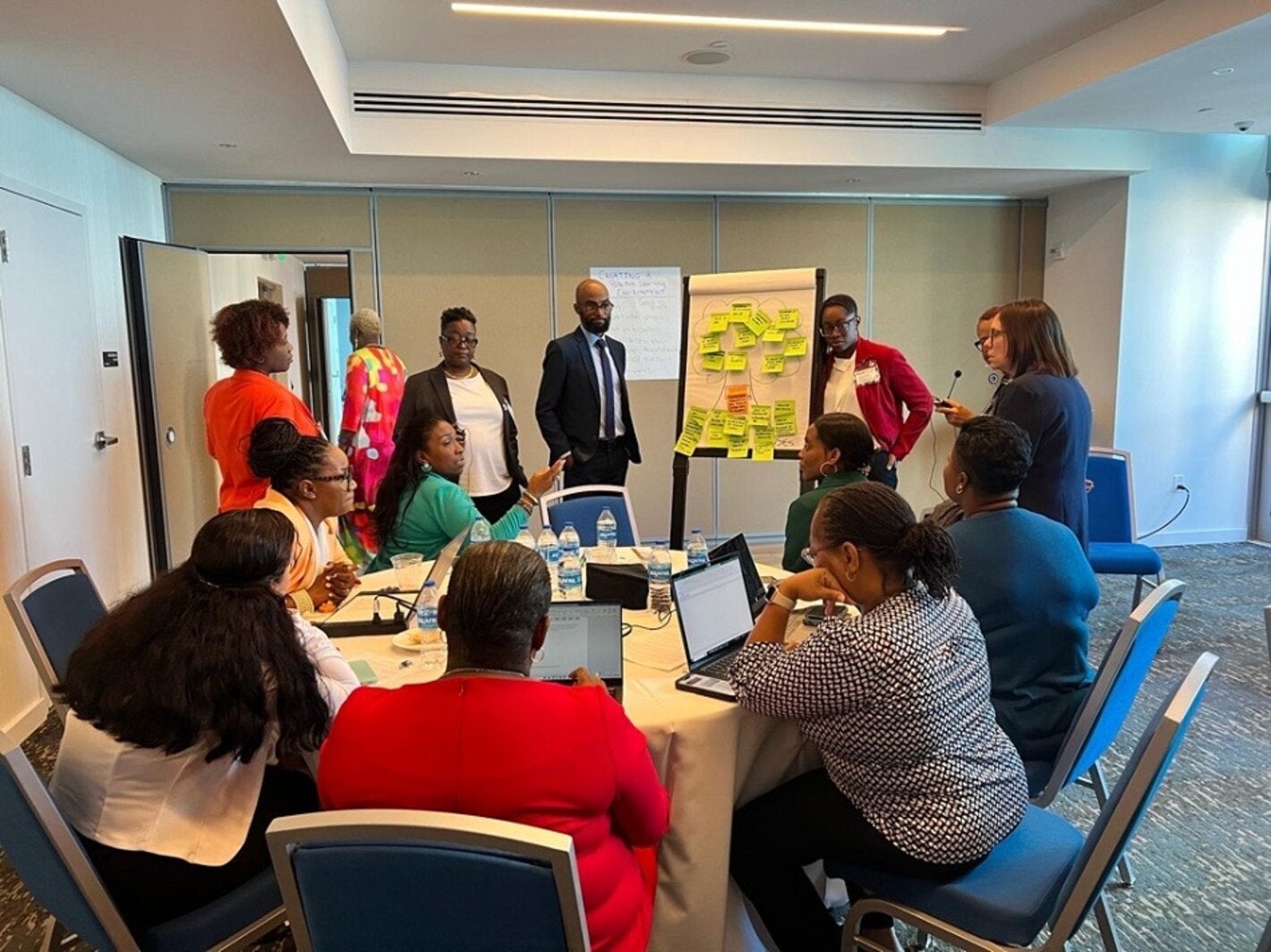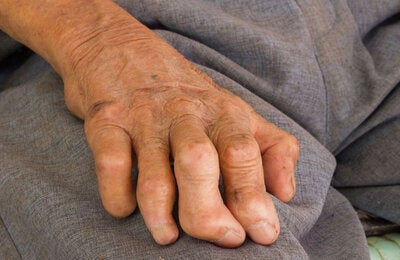
PAHO's Department of Health Equity holds a workshop on gender and equity with around 30 participants from the Caribbean countries.
Washington, D.C., 31 January 2024 – PAHO's Department of Social and Environmental Determinants for Health Equity (DHE) held a workshop in Miami on January 30 and 31 focused on the analysis of gender inequities and inequalities in health in projects, plans and programs. The workshop focused on the use of the Gender and Intersectionality Analysis Methodology (GIA), developed by PAHO with funding from the Government of Canada.
The event was attended by some thirty participants, all from Caribbean countries (Barbados, Belize, Bahamas, Jamaica, Haiti, Trinidad and Tobago and Guyana). The attendees were PAHO staff and professionals from the ministries of health of the countries. The workshop focused specifically on the development of a work plan for the implementation of the GIA in the context of the immunization programs and plans of Haiti and Jamaica.
The workshop was held to strengthen institutional capacities to identify and analyze gender inequalities, among others, in health projects, plans and programs, as well as to strengthen institutional capacities to design initiatives that include an equity and gender approach, promote monitoring and evaluation of gender equity and inequalities in health.
Gender and social determinants of health
DHE Department Director, Gerry Eijkemans, pointed out that "there are inequities between women and men in terms of health and these do not come from biology only, but from the social context in which one is born, lives or works, and from the different positions that men and women occupy in our societies. This gender approach is connected with others, such as ethnic group, whether the person lives in a rural or urban area, socioeconomic position, employment conditions, that is, with the social determinants of health, and all these factors work together."
Eijkemans highlighted PAHO's "pioneering" 2005 policy on gender equality, which explicitly states as its main objective "to contribute to achieving gender equality in health policies and programs and to actively promote equality between women and men."
Finally, DHE Director reminded that talking about gender does not only refer to men and women, but also to other gender identities. In this sense, "the PAHO report on Masculinities and Health in the Caribbean," said Eijkemans, "points out, for example, that the trans population is one of the worst population groups in terms of discrimination and social conditions, and health outcomes."
Canada's GIA Methodology
The GIA methodology is an analytical process that provides a rigorous method for assessing systemic inequities and a way to determine how diverse groups of women, men and gender-diverse populations may experience policies, programs and initiatives.
The methodology, based on the GBA+ tool developed by the Government of Canada, incorporates an intersectionality approach, which means that it takes into account other social identities, such as race, ethnicity, sexual orientation, age, and mental or physical disability, among others, and how the interaction between these identities creates advantages and disadvantages and influences how certain population groups experience government policies and initiatives.
The head of the DHE Department's Unit of Gender and Equity, Jessie Schutt-Ainé, noted that "the GIA approach helps to ground equity, gender and intersectionality in programming and improve program effectiveness by understanding who is not being reached, why and addressing the underlying causes."
PAHO consultant Taraleen Malcolm celebrated that the workshop "helped to understand how gender and intersectionality can improve program effectiveness, with practical approaches."





